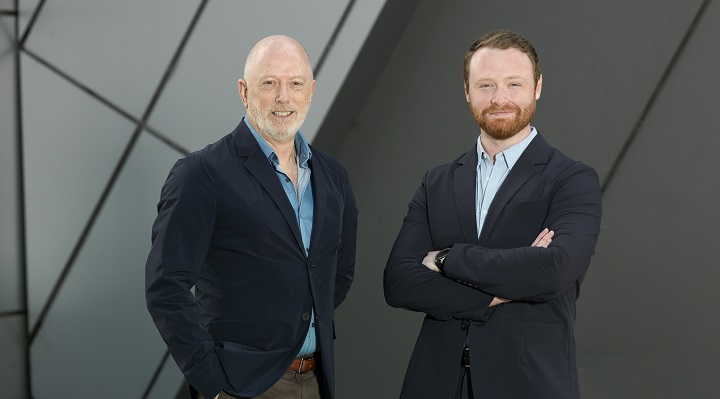Fast-growing Australian online retailer Canningvale plans to relaunch the iconic Singaporean department store Robinsons as an online-only business this month after acquiring the company’s digital assets for an undisclosed sum. The acquisition includes Robinsons’ brands, domain names, products, social media accounts, mobile applications, associated data and historical website. Founded in 1858 in what is now known as Raffles Place by Philip Robinson and James Gaborian Spicer, Robinsons w
sons was last purchased by United Arab Emirates-based Al Futtaim Group for $600 million.
Despite achieving sales of S$257.3 million in 2014, the retailer suffered from years of declining foot traffic and was placed into liquidation at the end of 2020.
But Canningvale’s managing director of the past six years, Jordan Prainito, who spent time in Singapore as a university student, believes there’s still an appetite for Robinsons as it was originally intended – a value department store, rather than a luxury player, as Al Futtaim envisioned.
“After conducting due diligence with former Robinsons staff, suppliers and customers, we got a sense that the owners had [tried] to position the brand as the Harrods of Asia,” Prainito, Robinsons’ new managing director, told Inside Retail.
“Historically, Robinsons was more of a Myer than a David Jones, so a broader offering that was more accessible to individuals in terms of price points,” he said, referring to Australia’s two main department stores.
“That is one of the reasons we see an opportunity.”
Returning to its roots
The online marketplace model is a key part of Prainito’s plan to take Robinsons back to its roots as a value player. But rather than taking a ‘more is more’ approach as most online marketplaces do, Robinsons’ range will be much more curated.
“The point of difference I see for Robinsons in the market is as a value-orientated, specialist online department store that focuses on offering less choices, better options,” Prainito said.
“It’s my view that consumers today and in the future will turn to a marketplace where they can rely on the quality of the suppliers, products and experience, with the marketplace itself as a layer of curation.”
Robinsons will offer three to five brands at different price points in each category, from cosmetics, health and wellbeing, to products for the home and men’s, women’s and kids’ fashion.
It will launch with 266 brands, including Avène, Braun, Royal Doulton, Hugo Boss Home, Jockey, Canningvale and Singaporean womenswear brands The Station and Joan Allen. Some of the brands have a history with Robinsons, while others are new to the department store.
Eventually, Prainito plans to roll out exclusive ranges and collections with key brands and suppliers.
Owning the last mile
Another point of difference for the business is around delivery. As an online-only business, Robinsons won’t hold much inventory – it has some private-label homewares brands – but it will take responsibility for last-mile fulfilment.
“The way we will work with suppliers is almost a hybrid dropshipping consignment model, where the brand and suppliers will hold the stock and pick and pack the orders, but we will then handle the last mile,” Prainito said.
“The last mile experience is one of the most important experiences for the customer and really impacts the stickiness or retention of the customer,” he explained.
It could also help raise brand awareness. Without bricks-and-mortar stores, online-only retailers often struggle to stay front of mind for consumers. Delivery vehicles featuring the Robinsons logo on the streets of Singapore could help the business overcome that hurdle.
But if the delivery experience doesn’t meet expectations, it could backfire.
The future of department stores
Richard Umbers, the former CEO of Myer, believes the time has come for online-only department stores.
“What made the department store so compelling for over 150 years was that it brought together all your lifestyle needs into one easy access place, ultra-convenience in its day. It was a stage to showcase the latest trends, to inspire and entertain, and in doing so became the place to see and be seen,” Umbers told Inside Retail.
“As retail shifts online, the retail marketplace fulfills this role very efficiently and effectively, offering newness, range, entertainment, and nowadays also compelling pricing and delivery to the home. Online is therefore a very logical extension of the department store, and a brand like Robinsons will translate well into the online retail market,” he said.
“Robinsons conveys trust and gravitas, and the brand has a deep connection to the Singapore customer who is now increasingly themselves buying online.”
Umbers also pointed out that the transaction mirrors the acquisition of the Debenhams brand by online fast fashion giant Boohoo.com in the UK, and even Dick Smith’s online business by Kogan.com in Australia.
“There remains a strong case for physical retail, but in the case of department stores more as retail-tainment destinations, as flagship showcases to reinforce the brand, attract and engage new customers and ultimately form part of an ecosystem of multiple channels,” he said.
From Perth to the world
The acquisition of Robinsons marks a new era of overseas expansion for Canningvale, a family business founded in the Perth suburb of Canning Vale in 1977.
What started out as a towel manufacturing firm, supplying Bloomingdales, Macy’s and Country Road, has transformed into one of Australia’s fastest growing online retailers selling towels, bedding, linens and other homewares through its own e-commerce site and third-party marketplaces like Amazon.
The implementation of an online first approach under Prainito’s leadership, including scalable backend software systems, has enabled the company to keep up with rising demand without needing to increase headcount and other costs.
According to Prainito, the business is profitable, and he plans to bring this same approach to Robinsons Singapore.
Mark Goddard, the former CEO of New Zealand retail business Hallenstein & Glassons, and a member of Canningvale’s advisory board, will take over as managing director of Canningvale.

